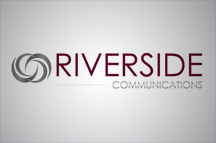 COVID-19 has not been a good time for lobbying transparency, but as we emerge from the lockdown it seems a good time to shine a light on the dirty dealings of a small minority of lobbyists.
COVID-19 has not been a good time for lobbying transparency, but as we emerge from the lockdown it seems a good time to shine a light on the dirty dealings of a small minority of lobbyists.
Over recent weeks we have seen a number of stories in the media which give cause for concern. Those of us who make our living from public affairs need to remember that our continuing licence to operate depends on a perception that we are transparent about what we do and that we operate ethically.
That is why I welcome the spotlight on our industry shed by two current reviews – a consultation by the Office of the Registrar of Consultant Lobbyists (ORCL) and a Cabinet Office review of the 2014 Transparency of Lobbying Act, which may in turn lead to an inquiry by the Public Administration and Constitutional Affairs Select Committee.
The ORCL consultation is on a rather narrow range of questions, but the Registrar is seeking views on whether it would be useful for ORCL itself to provide a template code of conduct for those who register. I think there could be a good case for that, since it would encourage consultant lobbyists to pay more attention to what a commitment to ethical public affairs should mean in day-to-day practice.
By contrast, the Cabinet Office review is more wide-ranging. It is considering firstly whether the scope of the statutory register of consultant lobbyist should be extended to cover in-house lobbyists and secondly whether lobbyists should be required to register contact not just with Ministers and Permanent Secretaries but also with other senior civil servants and special advisers.
On the question of whether the register should cover in-house lobbyists, my answer is a resounding ‘Yes’. The current restriction of the register to just consultant lobbyists doesn’t help anybody to understand the enormous scope and scale of in-house public affairs activity. The absence of a level playing field on registration seems to me to be unfair to consultants and to place us at a disadvantage. I really hope that the Government will put this right but partly because it would require legislative time, I am not holding my breath.
On the question of whether to broaden the range of political contacts that require registration, consultancies naturally won’t relish the extra work that would be involved. On the other hand, if we are honest, we should acknowledge that our day-to-day work rarely extends to Permanent Secretaries but often includes both senior officials and special advisers. It seems that Ministers may be more inclined to adopt this suggestion and I hope that they will do so.
Then there is a financial issue where I believe we need change and that relates to who pays for ORCL. At present all consultancies on the register pay a flat fee of £1,000 a year, regardless of size, so a one-person consultancy pays exactly the same as Edelman or Weber Shandwick.
As the owner of a small consultancy, I see that as a tax on small business. It is no fairer than a local authority tax system which obliged someone living in a one-bedroom flat in Hartlepool to pay the same tax as someone living in a six-bedroom mansion in Hampstead. ORCL should instead adopt a pro-rata payment system based on either revenue or number of employees.
Finally, I hope that the Cabinet Office will recognise that transparency is not just an obligation for lobbyists but should also apply to the Government itself. At a time when accusations of cronyism are rife, we should know more about how the Government makes decisions on procurement and public appointments. As for lobbying, there should be an overhaul of the current guidance on what information Government Departments should provide on meetings with Ministers. Too often we are told that the topic of a meeting was a “catch up”, which conveys precisely nothing about what issues have been discussed. The Cabinet Office should reform its guidance so that we can all discover exactly what each meeting has been about.
As we contemplate a return to something like normal life, we can hope that the country will “build back better”. How we do public affairs would be as good a place as any to start.
by Dave McCullough, Managing Director, Riverside Communications












